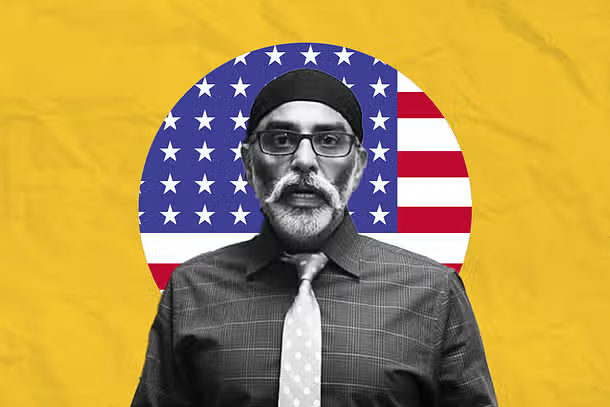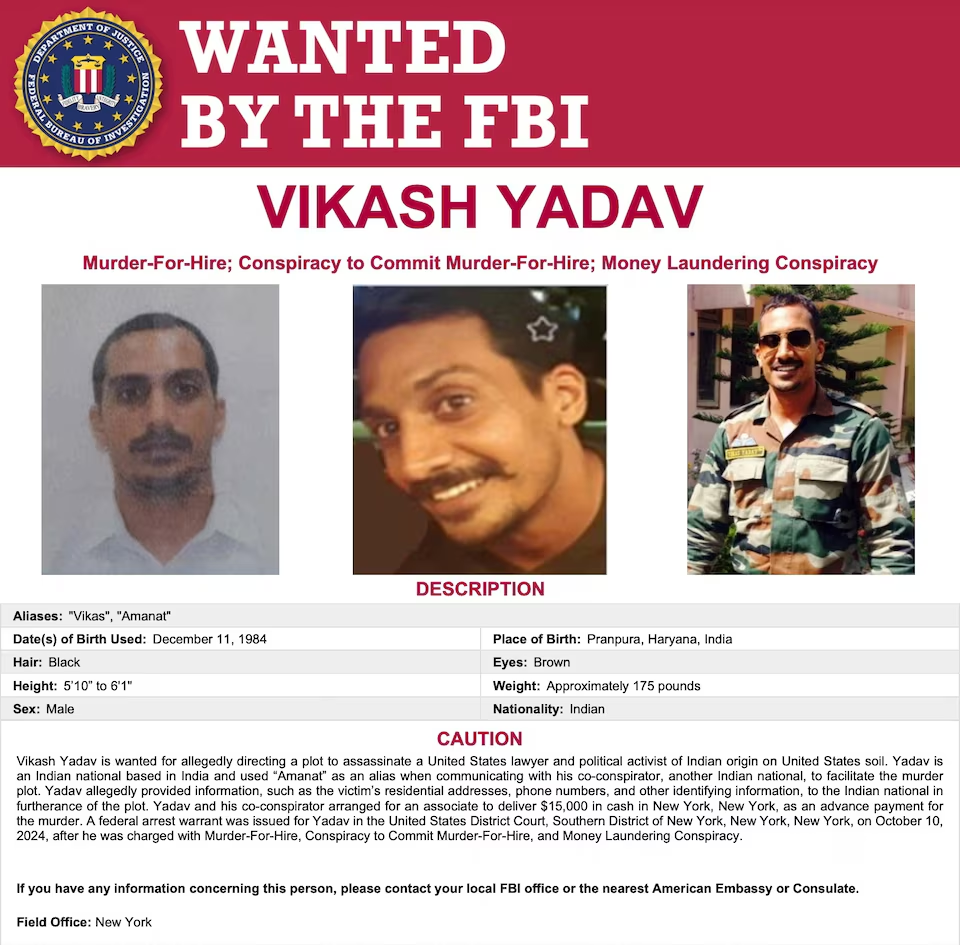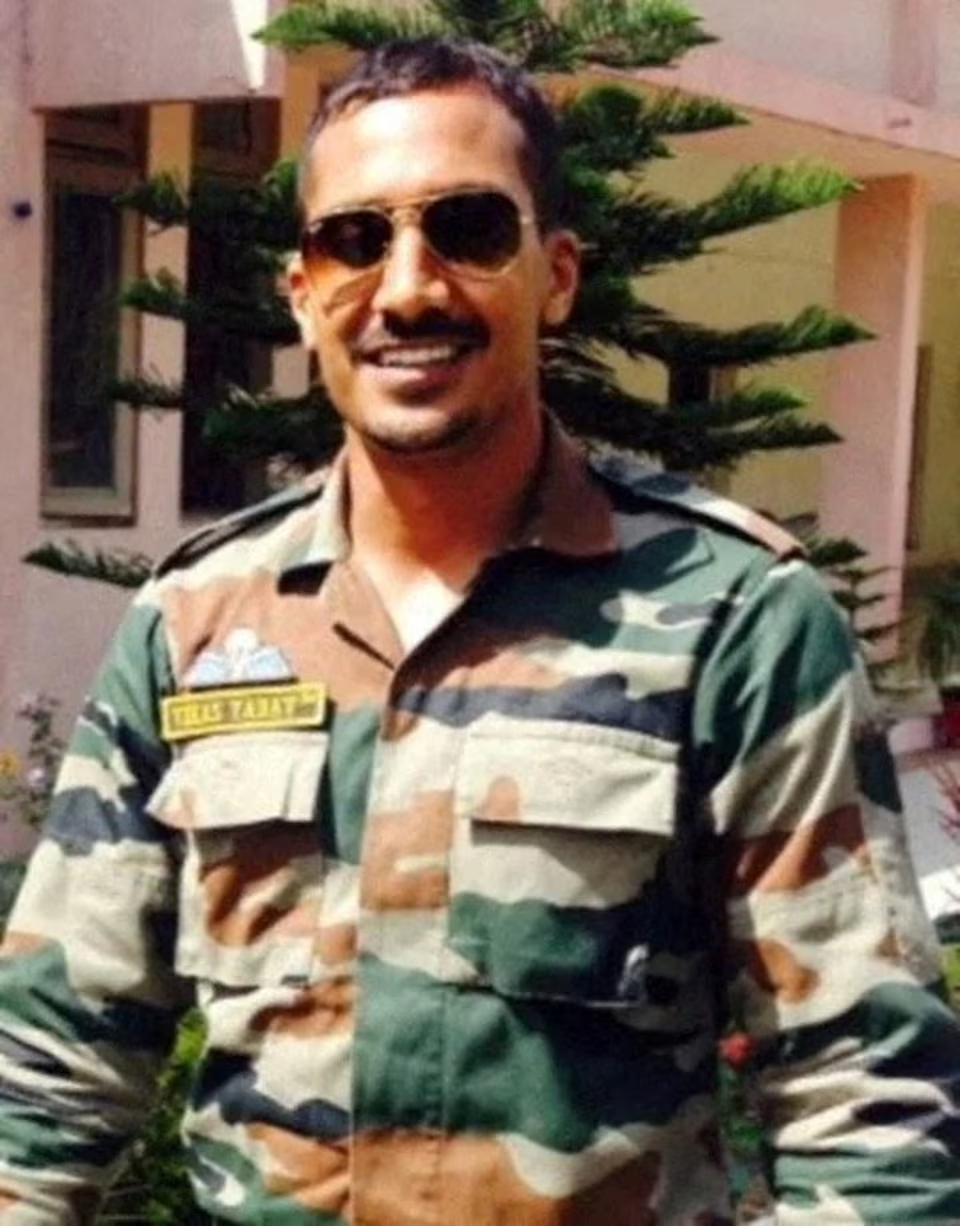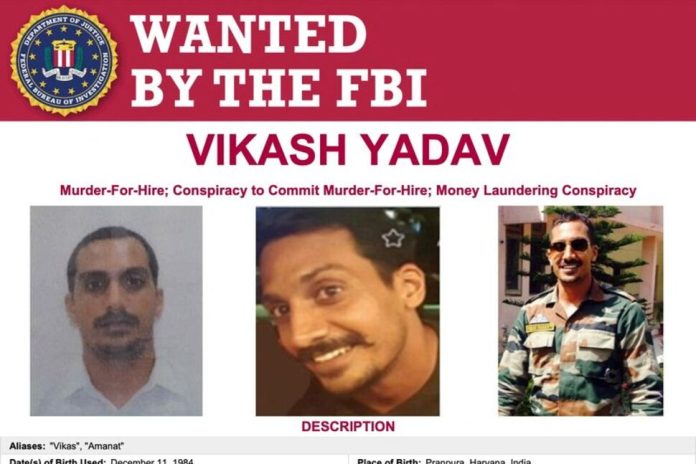Vikash Yadav, a former Indian government official who was charged this week in the United States for allegedly orchestrating a foiled murder plot against a Sikh separatist leader, had previously been arrested in New Delhi on attempted murder charges, according to Indian court records and statements from police.
On Thursday, the U.S. Justice Department unsealed an indictment against Yadav, 39, accusing him of leading a conspiracy to kill Gurpatwant Singh Pannun, a dual U.S.-Canadian citizen and a prominent advocate for Sikh separatism. According to the indictment, Yadav, an employee of the Indian government at the time, directed the assassination plot from May 2023, working with accomplices both in India and abroad.

New details have since emerged that Yadav was arrested by Delhi Police on December 18, 2022, in connection with a separate case of attempted murder. The police officer who confirmed Yadav’s arrest did so on condition of anonymity, citing the ongoing investigation. Court filings show that Yadav, along with an associate, faced charges of attempted murder and other serious offenses in connection with the incident.
Yadav’s lawyer, R.K. Handoo, has dismissed the Indian charges, describing them as “fallacious” and part of “an international plot to bring shame on the government of India and my client.” Handoo declined to offer further comment on either the Indian or U.S. cases. Neither the police nor Handoo responded to questions regarding Yadav’s current whereabouts, although reports from The Washington Post suggest that Yadav remains in India. The U.S. is expected to seek his extradition to face charges related to the assassination plot.
In the Delhi case, the accusations stem from a complaint filed by an Indian businessman who alleged that Yadav and an accomplice kidnapped, assaulted, and robbed him. According to the businessman’s account, detailed in a February 23, 2023 court order, Yadav and his associate physically tortured him and extorted money under the pretense of being affiliated with the notorious gangster Lawrence Bishnoi. The court document summarized the allegations, stating that Yadav and his accomplice threatened the businessman, forced him to sign blank checks, and left him near his car, warning him to remain silent about the incident.

Bishnoi, who is currently imprisoned in Gujarat, India, is widely recognized as the leader of a violent organized crime syndicate. He faces more than 40 criminal charges, including murder and extortion, though many of his trials have yet to begin. Indian government agents have been accused this week by Canadian authorities of having links to Bishnoi’s gang as part of a broader campaign targeting Indian dissidents residing in Canada. India’s government has strongly denied these allegations.
In the attempted murder case in Delhi, the police have yet to confirm whether Yadav has faced trial or if he remains in custody. The court order based on the businessman’s complaint outlined how Yadav and his associate allegedly obtained the businessman’s signed checks before releasing him. Despite the severity of the accusations, Yadav’s legal team has consistently maintained his innocence.
The unfolding legal battle takes on added international significance in light of Yadav’s U.S. indictment. The U.S. charges revolve around a plot to assassinate Gurpatwant Singh Pannun, a vocal supporter of the Khalistan movement, which seeks to create an independent Sikh state. Pannun, who leads the advocacy group Sikhs for Justice, has long been a thorn in the side of Indian authorities, and the U.S. indictment suggests Yadav’s alleged plot may have been part of a broader effort to silence pro-Khalistan activists.

While details about the U.S. plot remain limited due to the redacted nature of the indictment, American officials have pointed to a complex network of collaborators, some based in India, working in concert to carry out the assassination. The FBI has reportedly been investigating the plot for several months, culminating in this week’s unsealed indictment against Yadav.
As the U.S. seeks Yadav’s extradition, the case has put a spotlight on alleged efforts by Indian government agents to target dissidents abroad. These accusations have already strained relations between India and Canada, following Canadian Prime Minister Justin Trudeau’s assertion that Indian government agents were involved in the killing of Hardeep Singh Nijjar, another prominent Sikh separatist, on Canadian soil earlier this year. India has denied any involvement in Nijjar’s death and has accused Canada of harboring extremists.
With Yadav now at the center of a high-profile legal and diplomatic clash, the case promises to have wide-ranging implications. If the U.S. succeeds in bringing Yadav to trial, it could expose new details about international efforts to suppress Sikh separatist movements and other dissidents critical of the Indian government.




